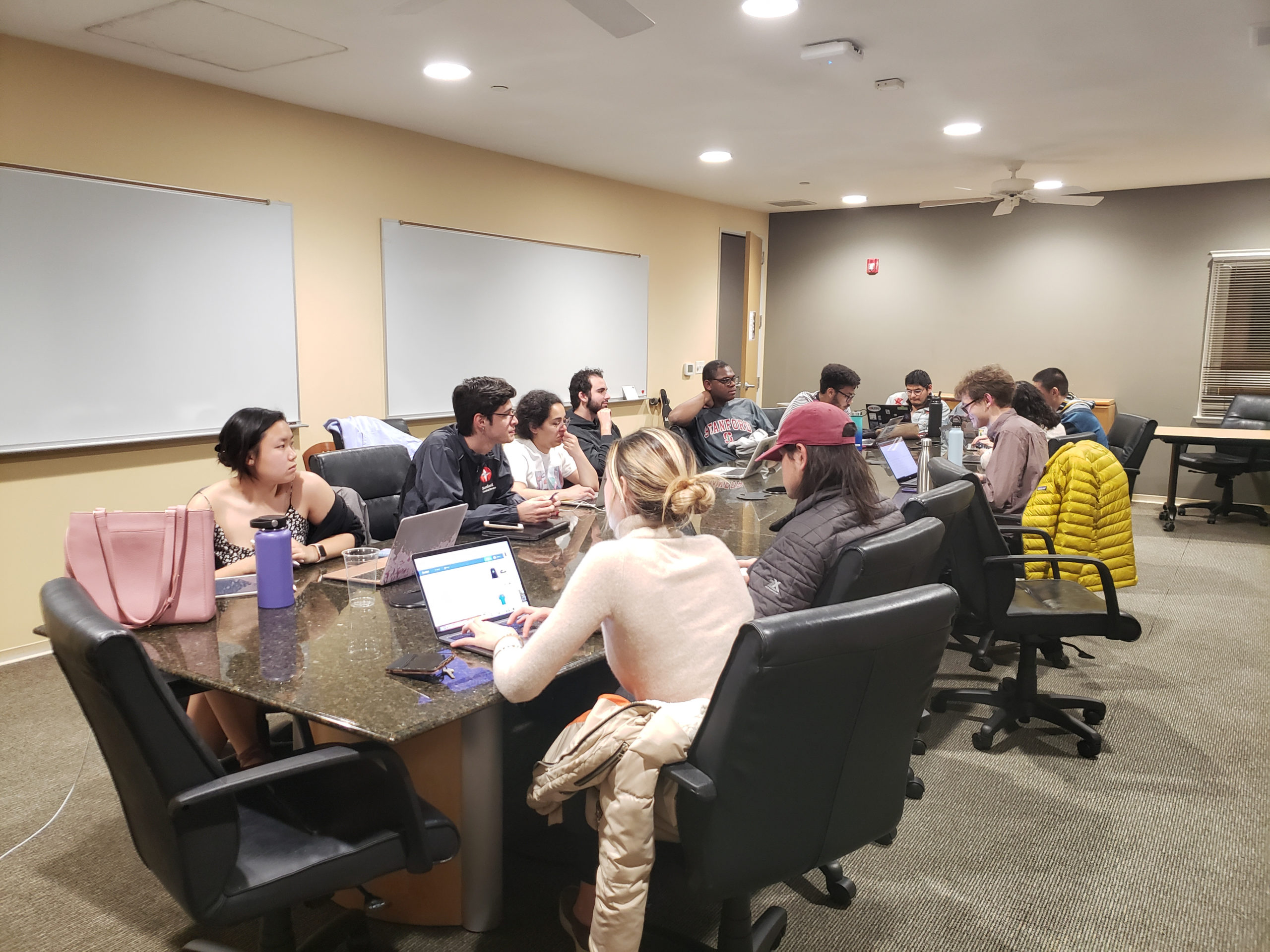This year’s Associated Students of Stanford University (ASSU) elections will now be conducted virtually in May, ASSU Elections Commissioner Christian Giadolor ’21 told The Daily.
The elections were previously scheduled for early April but were postponed indefinitely during the campus evacuation due to COVID-19.
Now, candidates will campaign virtually from May 11-17, Giadolor wrote. Students will vote from May 18-19, and election results will be released to the student body on May 22.
“We recognize that conducting virtual elections will be challenging and the Elections Commission is committed to ensuring that the electoral process is equitable and accessible as possible,” Giadolor wrote.
The entire membership of the Undergraduate Senate and the Graduate Student Council, along with the ASSU executives and class presidents, are up for election. Voting on annual grants — which allocate student group funding for the upcoming year — will happen at the same time.
After notifying candidates on March 16 that the election would be postponed, Giadolor sought feedback from ASSU representatives as he deliberated holding virtual elections for the ASSU legislative and executive branches later in the spring or postponing them to the fall.
Although Giadolor favored waiting until fall to hold in-person elections, fall elections would have created uncertainty over who would hold ASSU offices over the summer, he said. Without any constitutional guidelines for emergency terms or postponed elections, it would have been up to the Senate and the GSC to pass emergency resolutions. Returning to campus during fall quarter is also not a certainty.
Spring elections still pose potential pitfalls, however. Giadolor was concerned that tumultuous home environments for candidates and the student body would limit who could participate in the election process. Fully online campaigns could also create inequities when the reach of a candidate’s message depends primarily on their access to student listservs and Facebook groups, he told The Daily.
After consulting with the ASSU Executive Committee — composed of the leaders of all ASSU branches — Giadolor decided to hold ASSU officer and Annual Grant elections in spring.
The executive slates welcomed Giadolor’s decision.
“[I was concerned] that the seniors of 2020 wouldn’t be able to vote,” said ASSU Senator Martin Altenburg ’21, a candidate for ASSU executive along with slate partner and fellow Senator Jennalei Louie ’21. “I think it’s important for the senior class to have the ability to vote each year.”
The lack of time to transition officers into their new roles was also a concern.
“I had been leaning towards having [the election] in the spring,” said Vianna Vo ’21, a current ASSU executive cabinet member and a candidate for ASSU executive with Senate Chair Munira Alimire ’22. “Having it in the fall, we would lose a lot of time in preparing to serve during the spring.”
In the spring, the ASSU typically transitions from one administration to the next as members’ terms end and seniors graduate.
“That would have brought up a huge question over how that transition is made,” said Senator Micheal Brown ’22, who is running for reelection.
For their spring campaigns, candidates plan to utilize many digital mediums to campaign, including mailing lists, dorm group chats, Facebook groups and even, for Brown, Facebook ads.
Candidates told The Daily that they also hope the Elections Commission — consisting of Giadolor and Edwin Ong ’23 — would organize digital versions of the physical campaign events candidates use to reach new audiences, such as casual meet-and-greets and the executive debate.
“It’ll definitely have its own challenges … with the virtual platform,” Louie said. “Hopefully Christian will be able to support us through that.”
Giadolor said new regulations and campaign structures were still to be determined by the Elections Commission, but he said the commission intends to ensure that equitable campaigns are run without handicapping candidates. Giadolor is also seeking student feedback to guide the commission’s regulations and encourages students to fill out a survey to provide input on how campaigns should be conducted.
However, Giadolor told The Daily that he wasn’t concerned about lower voter turnout in an online election. He cited recent student engagement with campus issues, including attending the Faculty Senate meeting, raising money for students in need and signing petitions, as a reason for optimism.
“The student body is engaged with the ASSU,” Giadolor said. “I have a hunch that perhaps this year we have one of the highest turnouts we’ve ever had from the Stanford community, so I’m very excited.”
Contact Ravi Smith at ravi22 ‘at’ stanford.edu.
